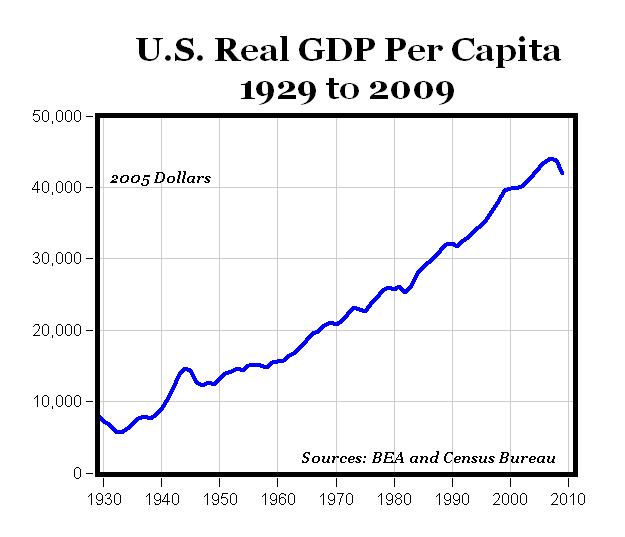- Joined
- Jun 3, 2009
- Messages
- 30,870
- Reaction score
- 4,246
- Gender
- Male
- Political Leaning
- Very Conservative
The economy grew 58% from 1932 to 1940 in 8 years of peacetime, and then grew 56% from 1940 to 1945 in 5 years of wartime. However, the unemployment rate never went below 9% before the draft. During the war the economy operated under so many different conditions that comparison is impossible with peacetime, such as massive spending, price controls, bond campaigns, controls over raw materials, prohibitions on new housing and new automobiles, rationing, guaranteed cost-plus profits, subsidized wages, and the draft of 12 million soldiers.
What are you just measuring GNP? It's not sufficient because it measures government spending as being just as efficient as private sector spending so it gives you a false impression, In reality, it's somewhere between GNP and PPR.

 Careful. Not a good thing to announce around here.
Careful. Not a good thing to announce around here.
